
This is for the people I refer to as “the FC police”, or as someone once said, “the sheriffs”.
I don’t want you coming to my life to “make sure” the words I type are mine, or that my facilitators are “honest”. You can’t because you don’t know me, or my journey. All you say only shows how incompetent you believe I am, how helpless and without determination you think I am.
It also sounds self-righteous and bullish, your stories and studies from long ago that prove nothing, that don’t have anything to do with my life, my difficulties, my accomplishments and my voice.
So, come down from the pedestal you built for yourself and back off. I am going to live my life despite your assumptions of my complete detachment of what I understand to be a human being experience: full of ups and downs, trial and errors, lots of hard work and ultimately growth.
Good bye.
Influence
Now that the bullies have hopefully left, I want to talk about some important things. The title of this article still applies, especially if you presume competence.
I want to talk about “influence”. This is the main concern surrounding FC and oddly enough, RPM (Rapid Prompting Method) – the assurance that our fingers are not being guided, that the words we type are really ours.
I will begin with the “guiding” issue.
It seems obvious to me that some people (I don’t call them facilitators) are unscrupulous (so are some in Congress, in the banks, in the justice system, in the planet). It is also true that FC is not for everyone, which is not the same as saying that people who cannot communicate in a way easily understood by the majority are incompetent.
The skeptics and the bullies have many theories that support their continuous bullying:
- The user is being guided
- The facilitator unconsciously guides the user’s hand (never mind that every real facilitator knows how to be aware of this “possibility”, and that it is impossible to guide someone’s hand by touching their shoulder, for example)
Now the “experts” that never talked to a non-speaking who types to communicate are also saying that RPM users are not the author’s of their words, even though there is no physical contact whatsoever.
The bullies want to sound less bullish and now they use the code word “influence”. The claim is: the simple presence of a speaking person next to us can make us type what they want us to type.
Influence is code word for: non-speaking Autistics are not competent and never will be, so the words they type are never theirs, even if nobody is touching them; they are so incompetent, anyone can influence what they say; they can never grow and learn to use their own voices.
This is discrimination. If influence is so powerful, that should be true for speaking people too.
How do I know that the words coming out of my speaking friends’ mouths is not being influenced by someone else? But I am not presumed to be competent, while speaking people are.
Influence is real, as we all influence each other all the time.
My experience is, as I grow and mature, as I learn more about things, through reading and relationships, I am influenced by my relationships with people and with my surroundings. To me this is life, a natural part of being out in the world.
As for my typing, I am now in a safe place with my main facilitator. I am also safe with other facilitators I know and I am training someone who I trust. Besides, I have friends who will voice their concerns if they notice something odd in my typing. These are friends I trust, not self-proclaimed “defenders of honest practices”. I also understand that there are expectations about what I should/will say and this might influence what I type. My feeling safe means I can reject such influences and type my mind out. I cannot control what others expect from me, but I can choose to fulfill that expectation by saying what they “want” to hear, or I can choose to say whatever I want, even if I disappoint them. My responsibility, my decision.
Who is to say that my facilitator is influencing me to the point of choosing the letters I type? If one could see our day-to-day interactions, one would understand why it is safe for me to type whatever I want. We, as human beings, have a very human relationship.
Besides, we influence each other all the time and I can argue that I exert great influence on how she says things. I am, after all, competent enough to teach her a few things.
I also want to say that I wish some people would stop idolizing typists. I am not an angel, I don’t have wings and I don’t ride a unicorn.
Despite of my friend K. saying that I am an “actual perfect human being”, she also knows I am capable of being not so nice and that I should be held accountable for whatever I type. If I am mean or if I type something hurtful, these words are still mine. No “influence” excuses. Still my responsibility.
Protection of my right to use my voice, the way I choose to.
Presume my competence because I am a human being interacting with other human beings, I grow up, learn and change. I influence and receive influence all the time. There is not a “super influence force” acting on me when I type, with or without physical contact.
Saying that typists are more easily influenced than speaking people is discriminatory and assumes that non-speaking people are incompetent, oblivious and not capable of growing to exercise self-determination. It assumes we will always need to be protected against the “superior” speaking people. I don’t want this “protection”.
Saying that typists are always wise and right, that everything we say is full of deep insights that only “trapped” souls can have is assuming we are more than humans. Saying that we can never hurt someone’s feelings, or use words considered “bad”, is also trying to paint us as angelic creatures. One cannot be presumed to be competent if one is so special and flawless. I don’t want this “protection” either.
I am just a human being, living a human life. The protection I want is the protection of my right to use my voice, the way I choose to.
If you cannot live with that, shut up and back off!


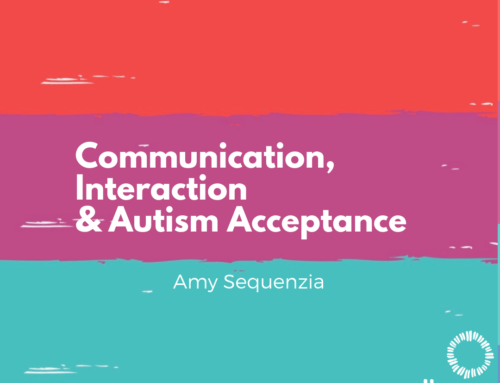
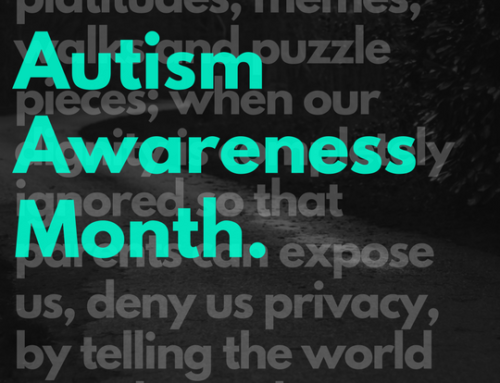
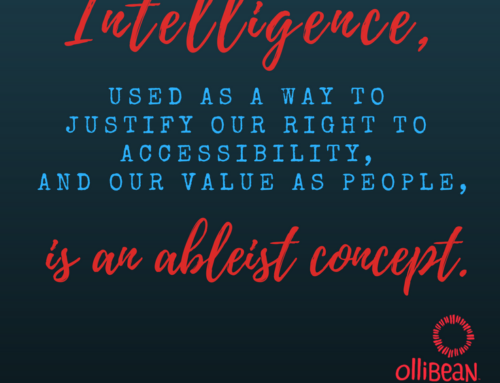
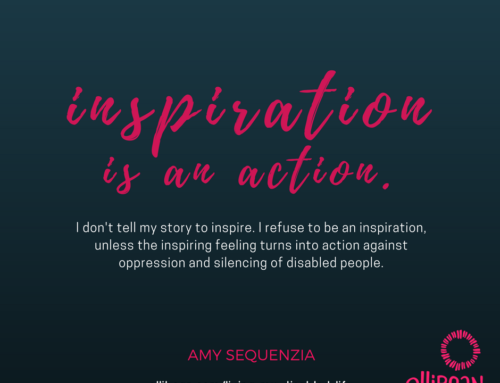
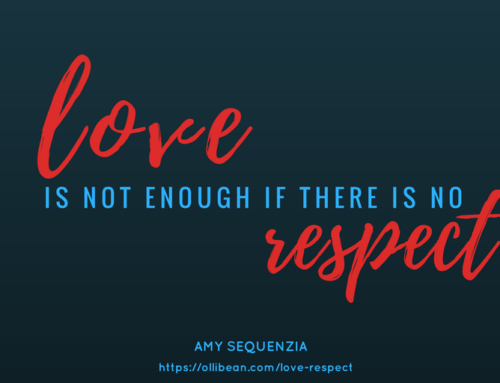
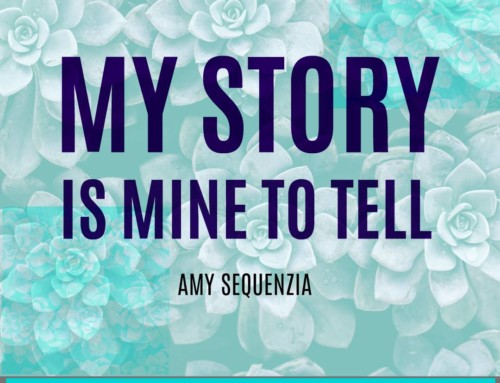
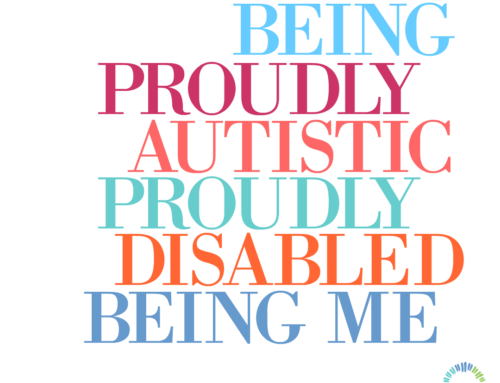
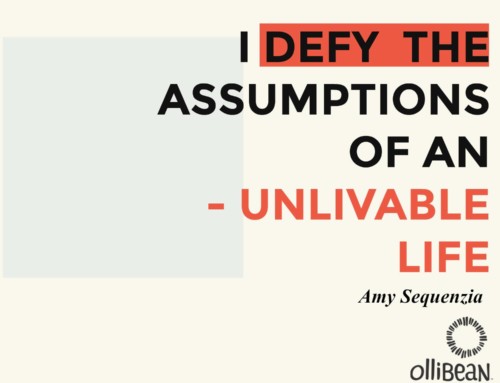
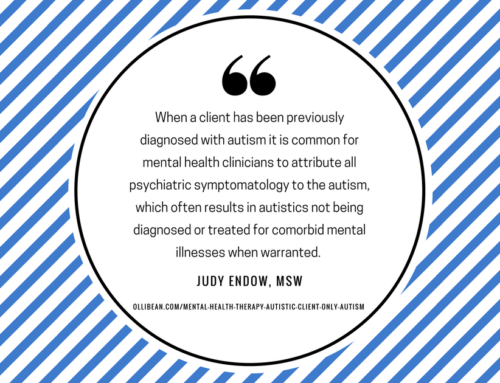
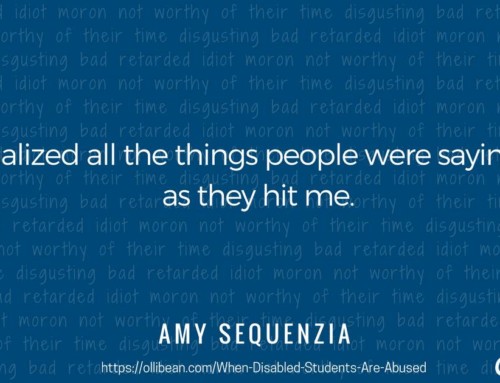

I have to admit, I never understood why people concern themselves if the communication is from other than verbally speaking. I am more into the message coming across. But then, I am not a natural in augmentative communication. I was taught this from an expert, but lost how to do it. To me what that person says is the key. How it got across, meh.
I really hope I never run into the people you speak of. I honestly can’t wrap my head around their attitudes. And I have enough mama-bear in me to go off on that kind of arrogance. You don’t need protection, but those people need to, like you said, step back and get off their judgmental pedestals. Sigh
This is my friend Grace, posting from my account:
thank you for the strength of your words. you are truthful and match my experience.
This is my friend Grace, posting from my account:
thank you for the strength of your words. you are truthful and match my experience.
Given how many people type to communicate (between memoranda, business letters, and social media), it seems absurd that we distinguish between people who communicate through typing and those who communicate with their mouths. Keep blogging!
Amy, I just added a link to this post to this one: http://wp.me/pNO8N-3Ck
thank you. thank you. thank you.
I totally agree with you. Those people who do that aren’t satisfied with their strengths and because we are gifted witg strengths and abilities which comes natural to us they look at ways and the use of different words to make it look / seem like they are enabling us to achieve these things. Bottom line is they don’t know how to appreciate / accept people who are different to them, especially if they cannot fully us. What they fail to grasp is if they were to begin accepting, loving and appreciating themselves first, then tthat would give them an opportunity to apply that skill to us and others. No matter how educated most people are many lack understanding id others aren’t replicas of themselves.